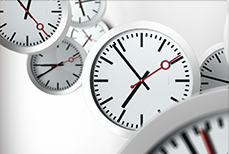Tooth Extractions
There are multiple reasons a tooth may need to be extracted. The tooth may be broken down from dental decay, have an infection, or be impacted. Impacted means that the tooth is coming in sideways and is blocked from erupting normally. If any of these situations occur, an extraction may be recommended. Dr. Spillers has a lot of experience and training in doing extractions and even extracts wisdom teeth in our office.
Call our office today for more information!
702-834-7755
Extraction Procedure
Our first priority is to make you feel comfortable at all times. For this reason, if you are anxious about having an extraction, or your wisdom teeth removed, we offer sedation dentistry to help relax you. This can help reduce anxiety, and often you leave the office with little to no memory of the procedure even being performed! After you are comfortable, we numb the area of the mouth to be worked in. If teeth are severely broken down or impacted, we may have to take them out in pieces in order for you to be more comfortable. Once the tooth is out, Dr. Spillers may write a prescription for pain pills or antibiotics if he thinks it is necessary.
What to do after an extraction
In general, we advise you to take it easy for a day or two to rest your body so it can devote energy to healing properly. Please do not work-out vigorously or attempt to go back to work too soon. Please refrain from smoking for at least 48 hours as the toxins can cause a delay in the healing process and decrease blood flow to the area. Also remember that typically swelling is the worst after about 48 hours but should start to subside after that time period.
General Post-Op Instructions:
DO NOT DISTURB THE AREA: Do not swish, suck through a straw, spit, or smoke for 48 hours, as they can dislodge the blood clot and impair healing.
BLEEDING: Keep slight pressure on the gauze for at least 45 minutes and don’t change it during this time. You may bite on additional gauze or a tea bag for another 30 minutes if you feel the area is still bleeding. Small amounts of blood in the saliva can make your saliva appear quite red. This is normal and may be noticed the rest of the day after the procedure. Be sure to place a towel over your pillow the first night as slight bleeding can still occur.
PAIN: Take your first dose of prescribed medication before the anesthesia wears off. Taking it with food or milk will help reduce upset stomach and nausea. Avoid driving or operating heavy machinery when taking pain prescriptions. Do not drink alcohol while taking prescription pain medications.
NAUSEA: Nausea and vomiting can occur because of swallowed blood, dehydration, discomfort, anesthesia, or pain medicines. Post-operative nausea is usually self-limiting and sipping on flat cola or ginger ale often helps. Soda crackers may also be used. If nausea persists, stop taking the pain medicine and substitute an over the counter pain medicine for the next dose. If nausea persists, call our office.
SWELLING: Apply an ice pack or cold compress to the face over the operated area the first day. Apply the cold for 15 minutes, then remove it for 15 minutes. The swelling will usually start to go down after 48 hours.
BRUSHING: Do not brush your teeth for the first 8 hours after surgery. After this, you may brush your teeth gently, but avoid the area of surgery for 3 days.
RINSING: Avoid all rinsing or swishing for 24 hours after the extraction. After 24 hours, you may begin gentle rinsing with a saltwater solution. Avoid commercial mouth rinses.
DIET: Eat soft foods for the first two days and maintain a good, balanced diet. Avoid anything hot in temperature (i.e. soup, tea, coffee, etc.). Return to normal regular meals as soon as you are able after the first two days. Drink plenty of water.
REST: Avoid exercising for the first 2-3 days after surgery. Try to get 8-10 hours of sleep for the first 7 days after your surgery as the body does most of its healing and repair during sleeping.
ANTIBIOTICS: If you were given an antibiotic prescription, take all of them as directed until they are gone. Women: some antibiotics can reduce the effectiveness of birth control pills. Use alternate birth control methods while taking antibiotics and for one week after.
FOLLOW-UP APPOINTMENTS: If non-absorbable sutures were placed, an appointment will be made in 7-10 days for their removal.
EMERGENCIES: If you have any questions, please do not hesitate to call our office at 702-834-7755. Dr. Spillers can be reached at all times. If you call during after hours, wait for the voicemail to pick up. Instructions, in case of an emergency, can be found in the voicemail message.


